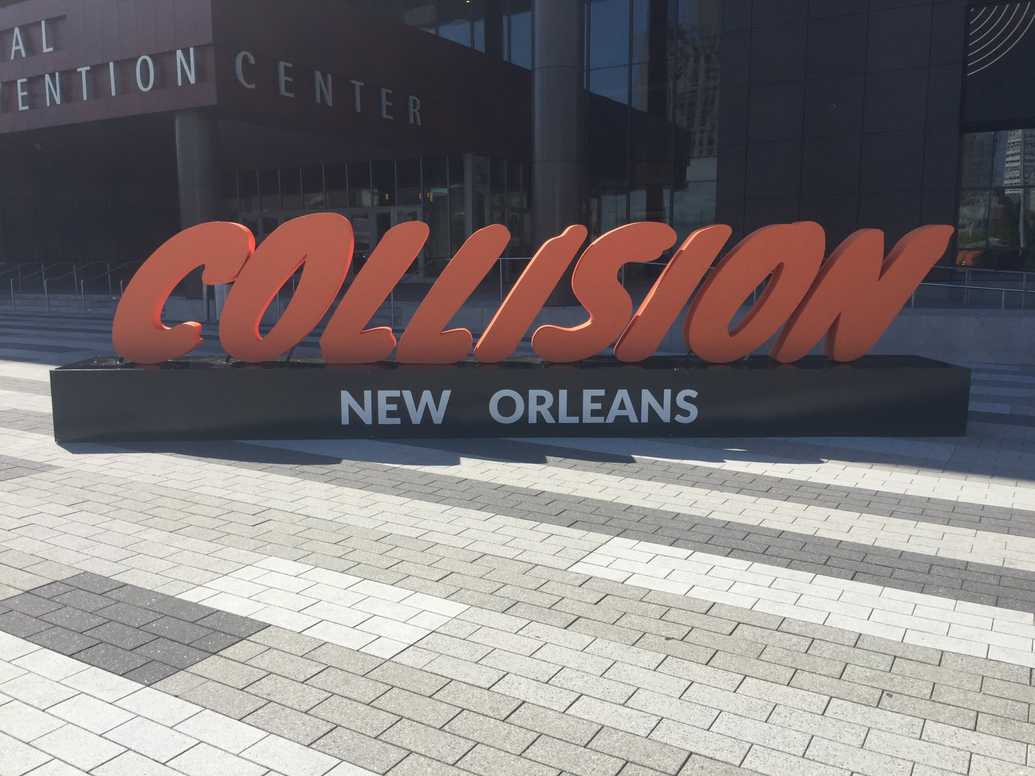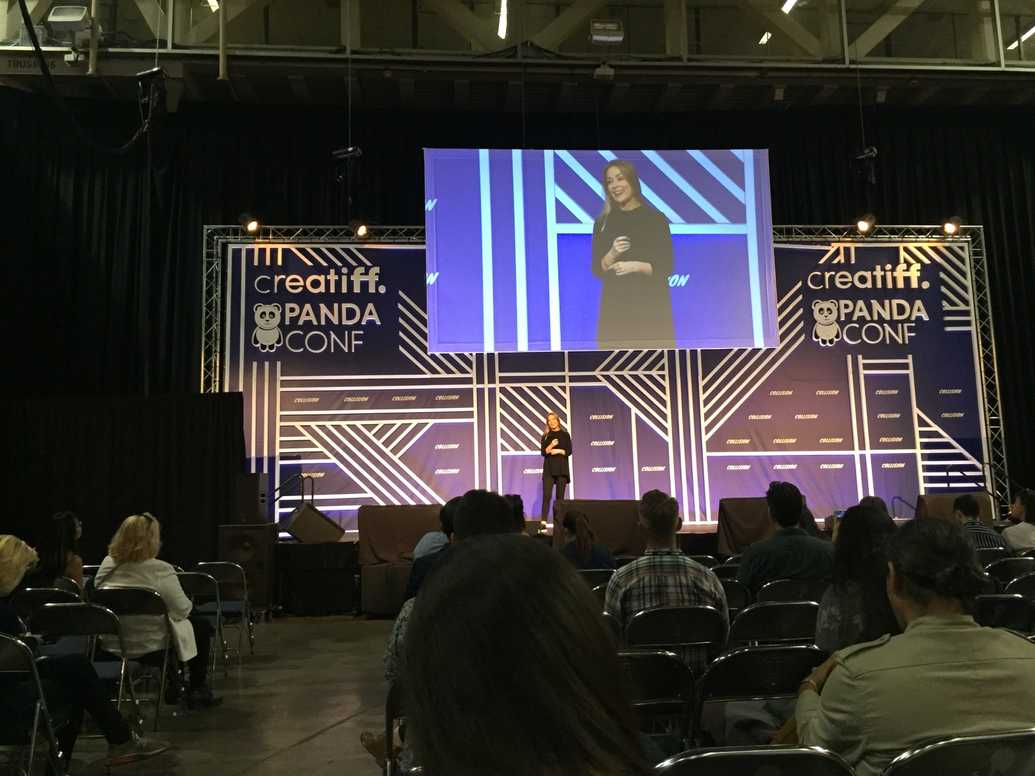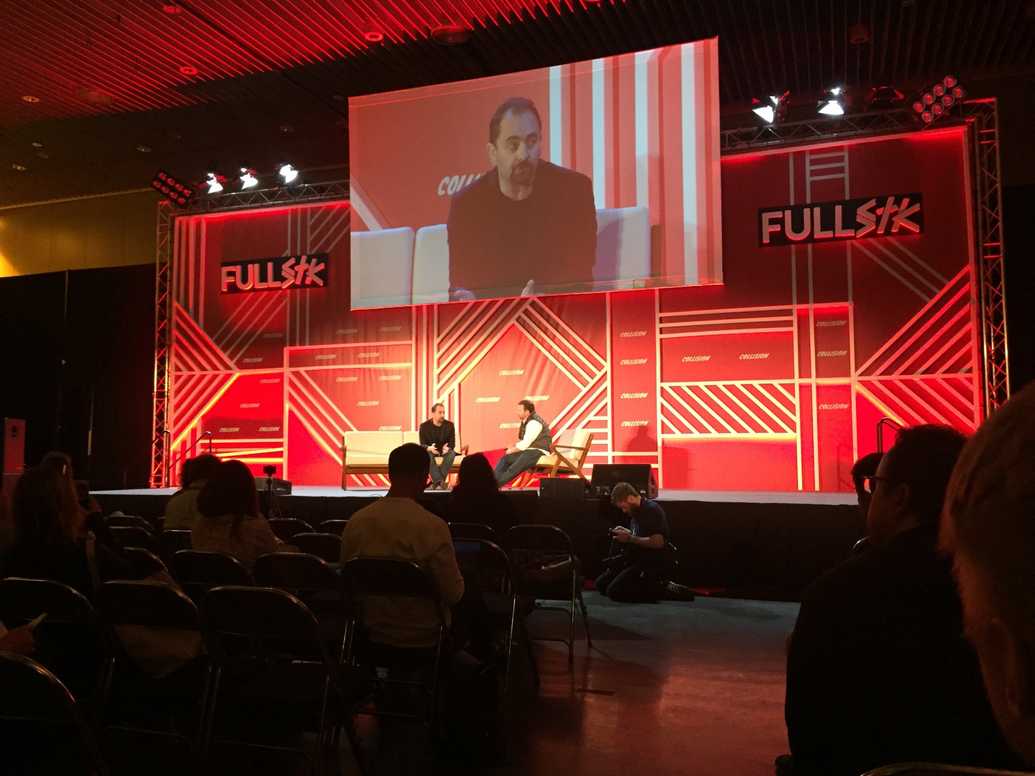Collision 2018 brought over 3000 startups together with politicians, VCs, journalists, CEOs of large corporations, and thought leaders. Over three days, a total of roughly 20,000 people convened via several tracks (or sub-conferences) each covering topics attendees found most relevant. Despite an ambitious agenda, the event felt extremely well-organized. At night, New Orleans took care of the rest, providing opportunities for networking and fun.
As the fastest-growing tech conference in North America, Collision 2018 was the perfect opportunity to see if I could spot any trends in the conversations emerging from the broad cross-section of conference-goers. What technologies, what companies, what business models, and what predictions about the future are on their minds?
This was my first time attending, and I made sure to take in as much as possible – headliner presentations, panel discussions, booths – while also talking up startup founders and comparing notes with journalists. Not too long ago, I was a startup co-founder, and I still like to be engaged in the tech startup community. I enjoy witnessing pioneers in action. Now, onto some personal observations and thoughts from the conference.
Business demands tech fluency
One thread that seemed to resonate was the need for greater understanding of technology by the wider workforce – especially our business leaders and governments.
Tech fluency is increasingly necessary to succeed in the knowledge economy. Technology has gone from a cost center to a revenue generator to a disruptor. Business, problem-solving, and social skills need to be complemented by the trades of the modern knowledge economy. Individuals, businesses, and governments that do not embrace technology learning will find it difficult to identify opportunities and threats early, or adapt to them when they arrive.
A couple of standout talks worth checking out:
- Brad Smith (CEO of Microsoft) focused on the needs of individuals (skills and infrastructure) to adapt in Opportunity in the AI Era: Closing the Technology Gaps
- Rebecca Parsons (CTO of Thoughtworks) discussed the changing face of leadership. She noted that more and more industries are becoming disrupted by or reshaped into technology companies. When technologists know their customer, they are able to spot opportunities for change and beat the competition better and faster than non-technologists. Watch it here: Why Your Next CEO Will Be a Technologist
AI
While I personally didn’t learn of any new emerging technologies to speak of, the subject of Artificial Intelligence showed up in many of the presentation titles and startup descriptions. As AI continues to move deeper into every industry vertical, it is becoming easier to recognize its potential disruptive impact. I think that’s reflected in its pervasiveness in so many conversations. On the stage, topics ranged from broad philosophical themes (e.g. is AI good or bad), to specific challenges (e.g. biases contaminating datasets), to lessons (e.g. reframing the learning organization).
Artificial Intelligence is perhaps too broad a term to encapsulate all the different discussions, but the ubiquity of AI as a “bumper sticker label” is useful as a reminder of how much activity and investment there is in this area. We should look out and factor in opportunities and threats. We should seek faster learning cycles, reduce the cost of change, and develop skills that are complementary. While the exact nature of change may be unknown, our ability to learn and react will give us the best odds.
Is America struggling at entrepreneurship?
The nature of innovation on display was a topic of conversation both on the stage and off.
Tim Draper (well known VC) and John T Chambers (Chairman of Cisco) took part in a well-received panel discussion on the national state of innovation that seemed to resonate with the audience: The Future for America: Innovation and Entrepreneurship. They cited some surprising trends, including that the US had dropped below the top 10 most innovative countries. They also suggested a potential root cause and some prescriptions for addressing it.
I find a narrative of struggling innovation and entrepreneurship difficult to ignore. In my daily work, I am challenged with reinventing organizations and business models to succeed in an economy that is complex and fast-paced. It requires personal initiative, openness to change, and a close relationship with the customer. In theory, these skills are aligned with those exhibited by entrepreneurs. Many practices like Agile, Design Thinking, and Lean Startup have evolved from their infancy to the mainstream over the past decade, and yet the big picture is shaded in red. I’m eager to investigate what other data points overlap that might help make sense of it.
Thanks for all the fish
Collision 2018 was a good opportunity to learn, meet new people, and see what a broad cross-section of the startup community is doing. A good conference to sense trends and get a sense of the future.




